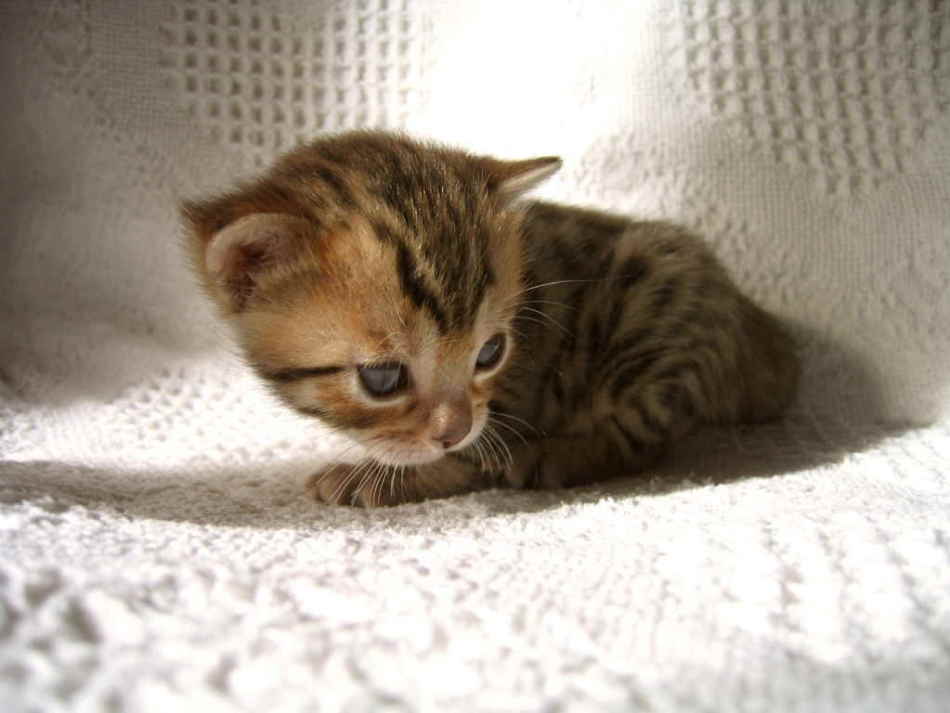To find out when the kittens are changing the milk teeth to permanent, read the article. Here you will receive detailed information about this issue.
Content
It is noteworthy that small kittens, like children, are born without teeth. And over time, they grow milk tooth, which tend to fall out later, and change already to permanent. Of course, in cats, the growth procedure of milk teeth occurs faster than in people, but animals also experience discomfort. Let's learn in detail how this process is in cats.
When in kittens do milk teeth change for permanent, at what age?
The first teeth of kittens appear already at two -week age. When the kitten is two months old, he already has all the milk teeth (there are 26 of them in total). After some time, when the kitten grows up, milk teeth lose their relevance and begin to gradually fall out. The change of milk teeth occurs in three to five months. It all depends on which cat cat and its individual development.
The owners of the pet will be able to notice this process in any way. The cat will behave anxiously, his habits will change. Your task is to pay maximum attention to your animal. And if a milk tooth for some reason does not fall out, then it will have to be removed so that the cat has no problems in the future. By seven months, the process of changing milk teeth in young cats is usually completed. The pet becomes the owner of thirty permanent teeth.

Change of milk teeth in kittens and cats: signs, symptoms
Animals, like people do not tolerate the process of changing milk teeth. They are also concerned about the uncomfortable state during this period. In addition, the following can be manifested symptoms:
- Pets become lethargic, sometimes they begin to hurt, because during this period they become a weak immune system.
- Even during the change of teeth, sometimes a smell appears from the mouth of a kitten, which quickly passes as the process flows.
- Kittens begin to bite all sorts of objects, you can bite your legs, arms. The main thing for you is to make sure that this subsequently does not become the habit of an animal. Otherwise, and then your cat will bite you by the fingers, etc.
- The cats have teeth, you can find them on the floor or somewhere else in the room. If you are a caring owner, then pay attention to the cavity of the cat's mouth. It is necessary that there is no suppuration anywhere. In the event of a painful place, take the pet to the veterinarian. Oddly enough, but animals can also suffer from problems with teeth.

What teeth fall in kittens first?
The first to fall out at the kitten incisors. The process takes place in three to four months. If the kitten does not get sick and he has good feeding, then the change of teeth occurs normally, without any complications. Experts advise feeding animals with meat (solid food), then they do not form a plaque on their teeth and, as a result, there is no tooth stone.

How many months did the kittens have fangs?
Immediately behind the incisors, fangs begin to fall out, in place of which constant, strong teeth are already growing. At this time (when constant teeth grow), vitamins with minerals do not interfere with a fluffy baby. Thanks to them, your animal will well tolerate your teeth change and will not get sick. Planned vaccinations during the growth of permanent teeth are better not to make, due to the weakened immune system of the pet.
Do not worry if your kitten refuses food during this period. After all, sometimes teeth do not allow to eat fully. But when, the cat does not eat more than one day, then problems can be more serious than changing milk fangs. In this case, visit the veterinarian. Let the doctor diagnose the animal.

Do the teeth fall in the flowering kittens?
Recently, the breed of Scottish berth has gained particular popularity. These cats are very kind creatures, love their owners, get along well with other pets in the apartment.
Kittens do not require special care, not picky in the content. They have a different color: from Serge-District, to a bright redhead. The wool of such cats is short, homogeneous, plush, so to speak.
The teeth of a thoroughbred kitten, as well as that of ordinary cats, grow almost the same. Small fluffs are born without teeth. In a month or two, they are already becoming tooth, by this time they already have twenty-six milk teeth. In three or four months, milk begins to fall out, and constant teeth grow instead of those that have already fallen. At seven months, the process of teeth change ends.

Be attentive to your pets. If during the loss of milk teeth the kitten does not behave the same as usual, often meow, does not even eat the most delicious goodies, then he had health problems. The gum or other difficulties may become inflamed. Inspect the pet, having previously washed your hands. In the case of severe gum inflammation, do not postpone the visit to the veterinarian.







